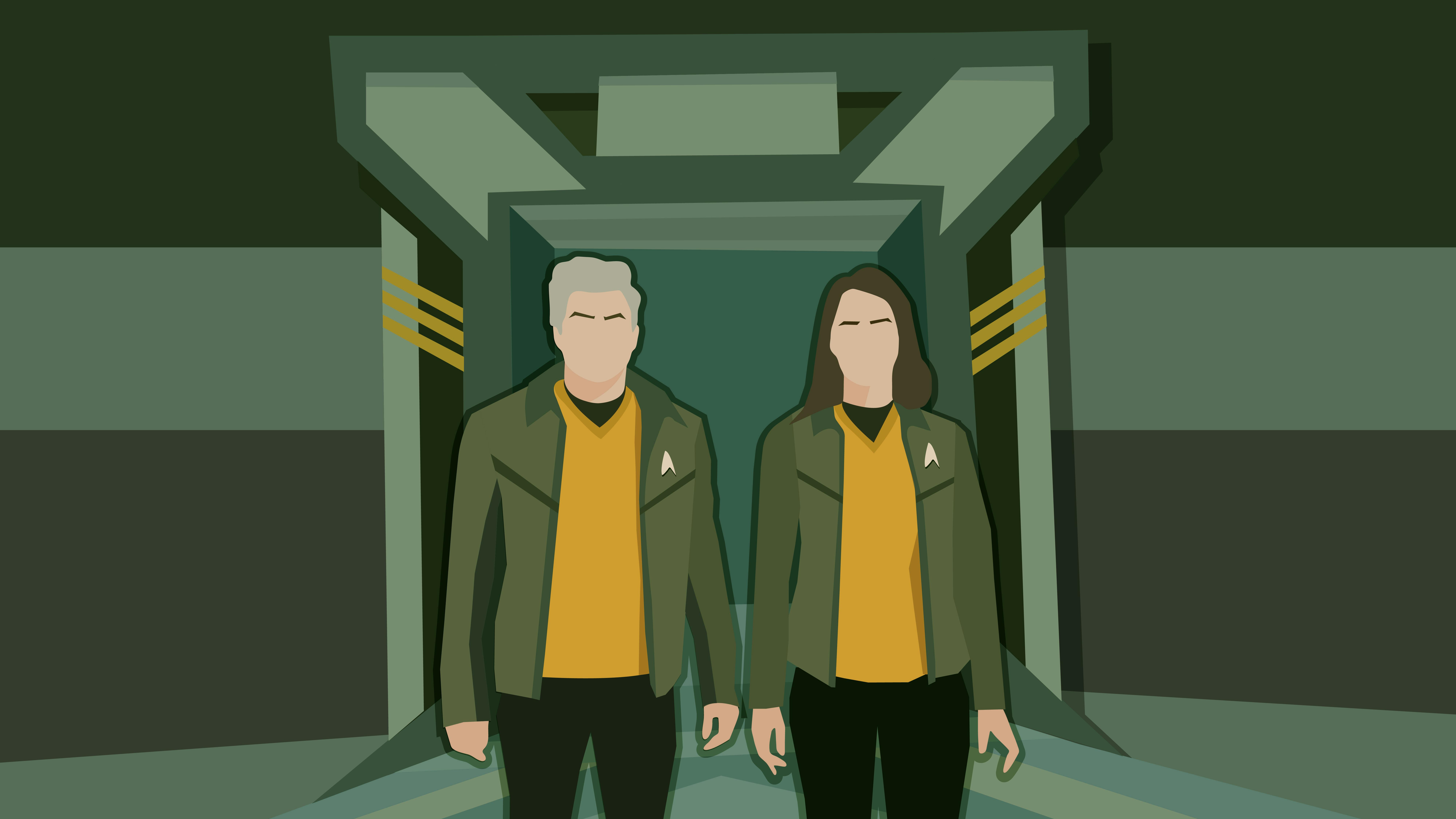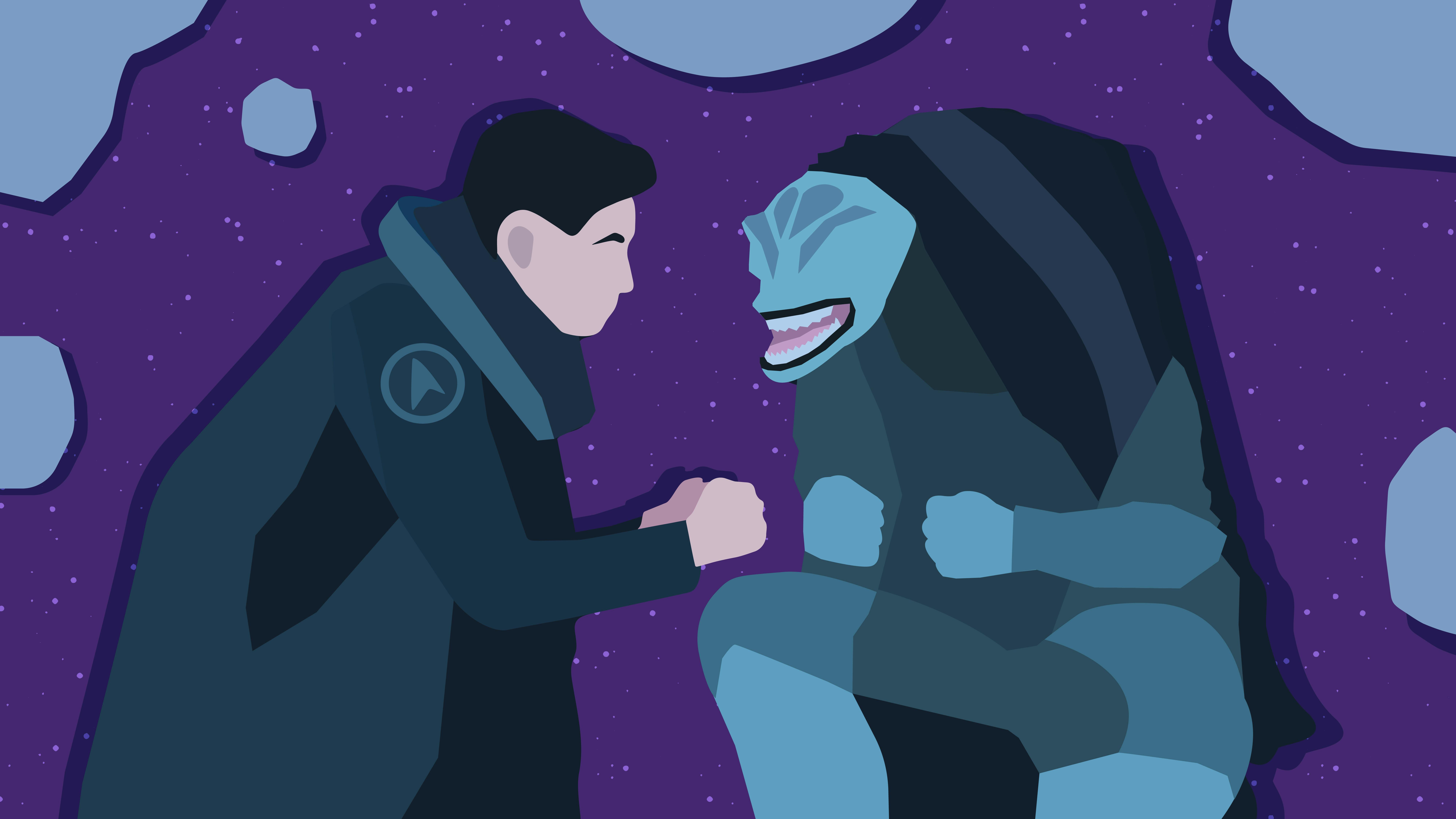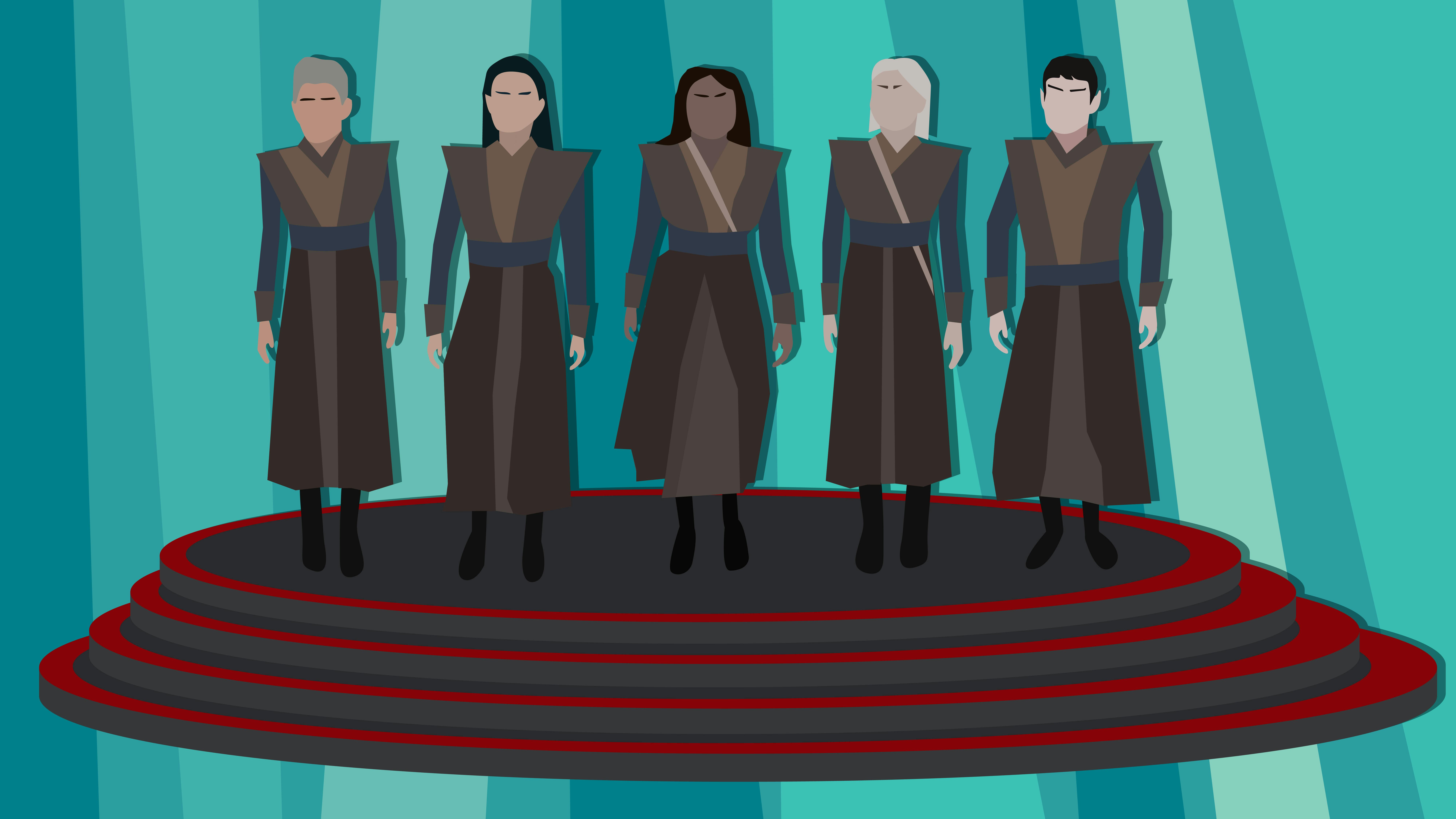Published May 26, 2023
How Strange New Worlds and the Gorn Makes Arena's Message of Mercy More Powerful
The Gorn's brutality makes it harder and more necessary to believe they deserved Kirk's mercy.
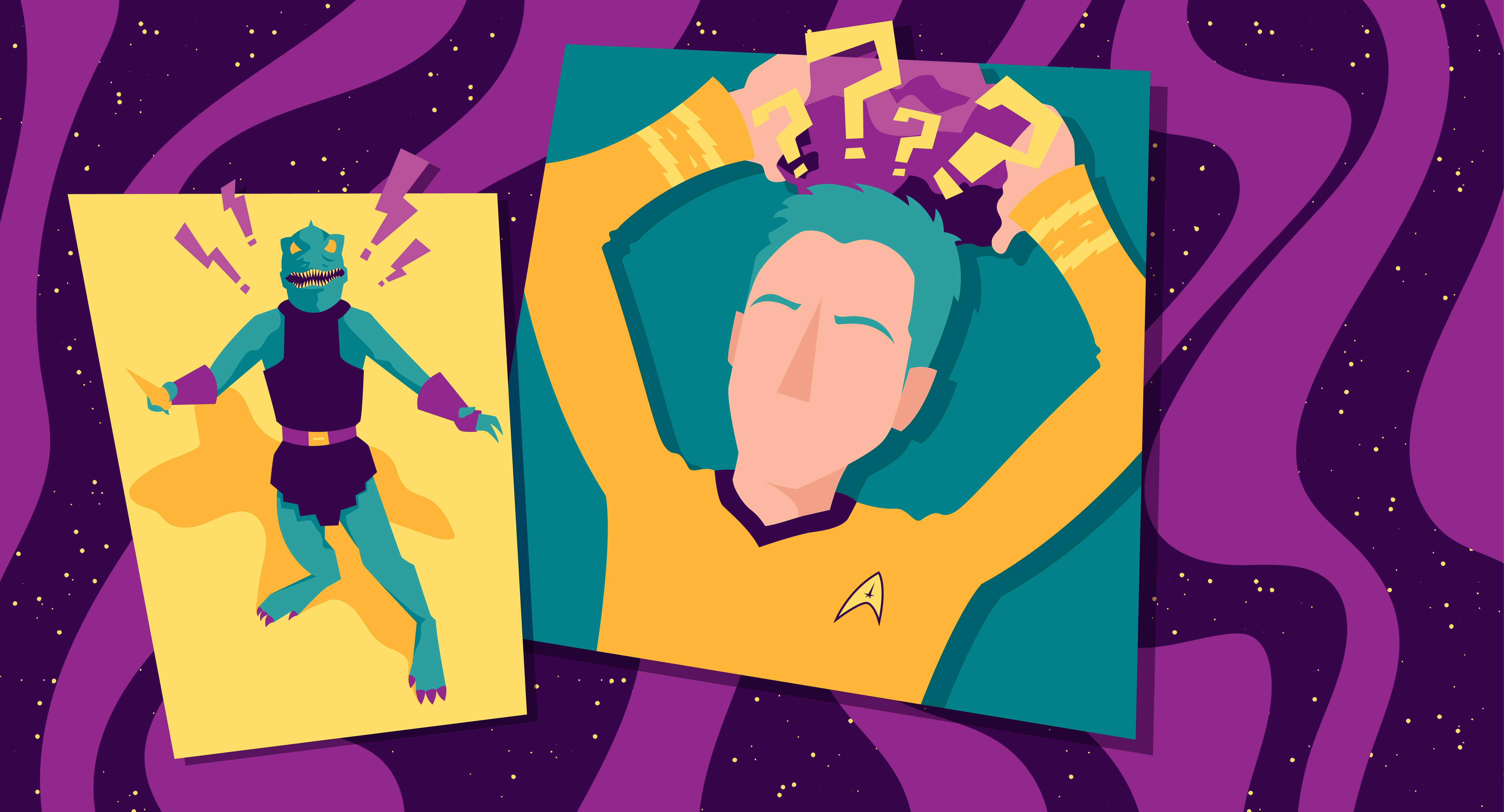
StarTrek.com
From the very start, Star Trek villains have served the narrative purpose of revealing exactly what values the Federation represents. Starfleet and the Federation may give decent speeches about how evolved they are and how much they want to "seek out" new life forms, but enemies like the Klingons, Romulans, Borg, Dominion, and Kazon have consistently tested Starfleet's limits. On Star Trek: Strange New Worlds, the Gorn take on the role of the show's most threatening adversary, while showing what type of officers make up Captain Christopher Pike's crew. Their appearance on Strange New Worlds draws comparisons to their introduction on Star Trek: The Original Series. During their first appearance, the Gorn illustrated Captain James Kirk's capacity for mercy, and Strange New Worlds challenged Kirk's decision by inviting the audience to wonder if it was the right choice. Audiences caught their first glimpse of the Gorn in The Original Series' episode, "Arena." The episode began with Kirk, Spock, and Dr. Leonard McCoy looking forward to spending downtime on the Observation Post located on Cestus III. Upon their arrival at the outpost, they were horrified to discover that it had been destroyed. As Kirk and his crew tended to the few survivors, the Gorn began an attack on both the landing party and on the Enterprise.
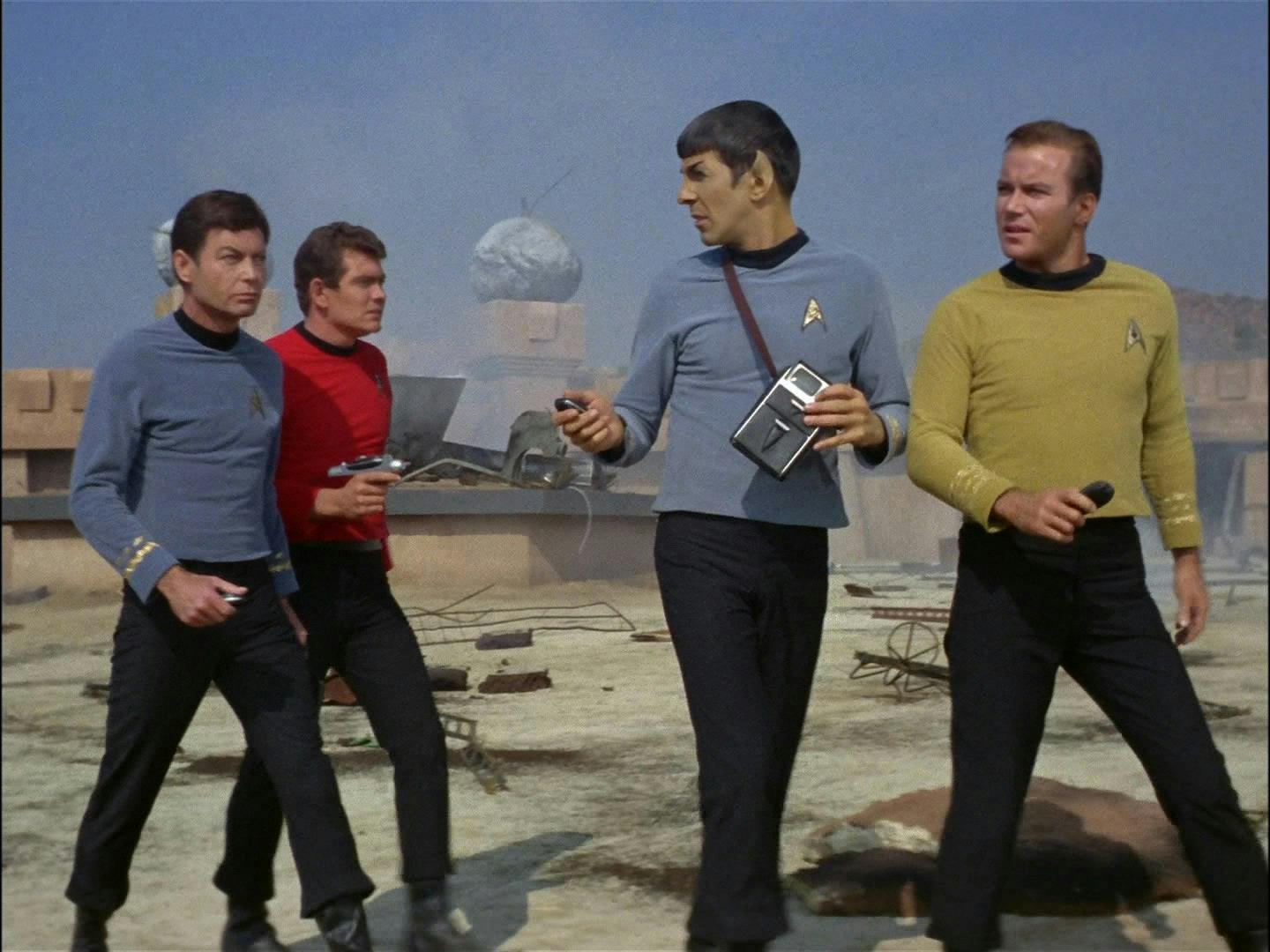
StarTrek.com
After Kirk and Spock fashioned a grenade launcher and mounted a counter attack, the Gorn quickly retreated back to their ship. "Arena" then turned its focus from the alien attack to the emotional effect the Gorn's attack had on Kirk. Lt. Harold relayed, to a furious Kirk, the Gorn's choice to continue their assault the outpost despite their repeated pleas for mercy and their inability to defend itselfVisibly moved by the retelling of the attack, Kirk pursued the Gorn, even after the Gorn vessel retreated. A high-speed space chase ensued, and Spock correctly pointed out that destroying their adversary would not bring back the lives lost in the outpost. Kirk retorted, "If the aliens do not go unpunished, they'll be back, attacking other Federation Installations." However, Kirk's plans for vengeance were thwarted by the Metrons, who forced the Gorn captain and Kirk to fight one another in arena-style combat. During the fight, the Gorn captain claimed that they were only protecting themselves against a Starfleet invasion of Gorn territory. Upon gaining the upper hand, Kirk could not bring himself to kill the Gorn captain. Instead, he extended an offer of mercy, saving the lives of the Gorn captain and his crew. Kirk mused, "Maybe you thought you were protecting yourself, when you attacked the outpost." Kirk's mercy is based around the conjecture that the Gorn were defending themselves.
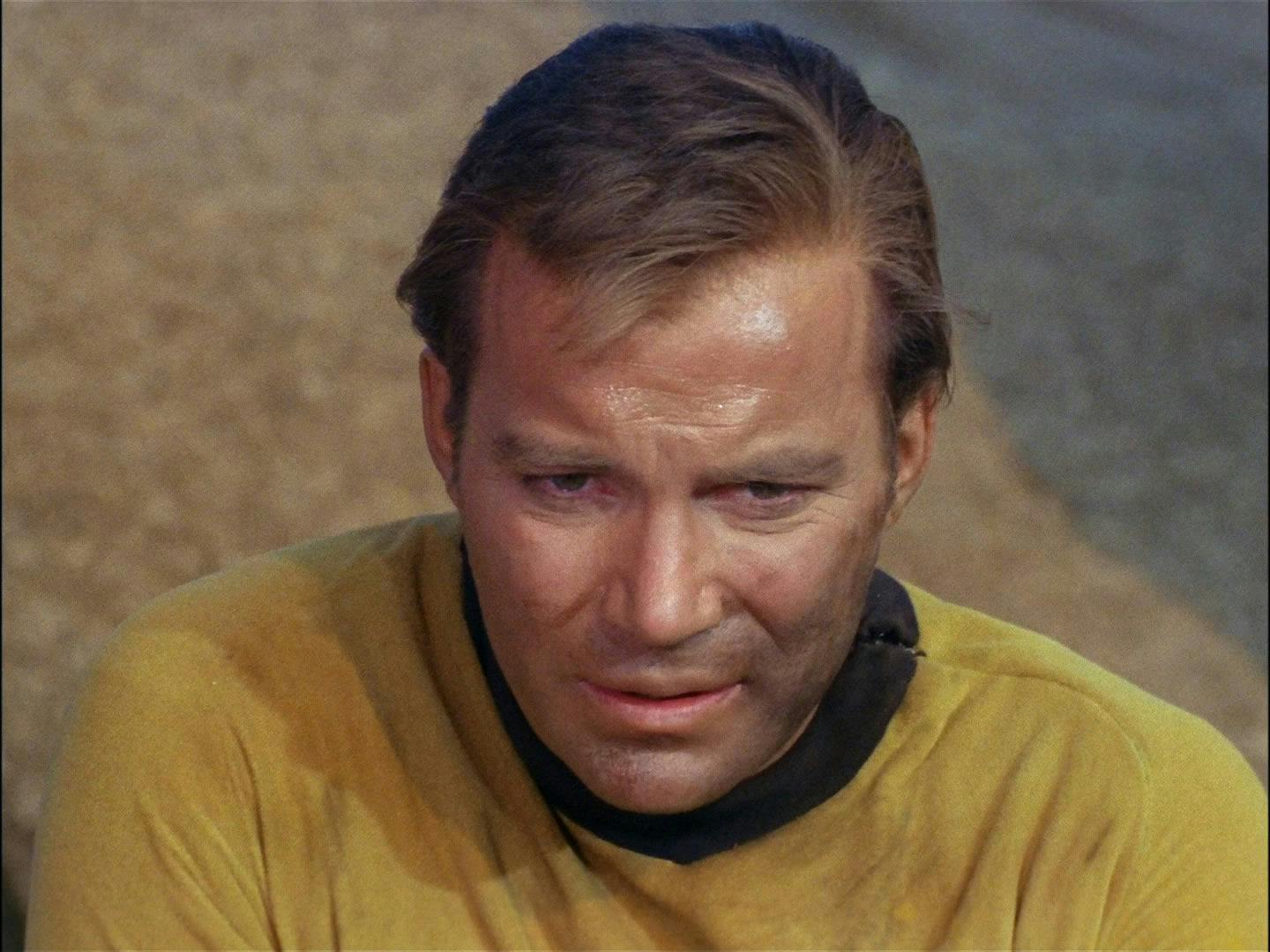
StarTrek.com
When the Gorn showed up in Strange New Worlds, that conjecture was no longer possible. These Gorn were a highly intelligent sentient species capable of hunting down prey, and they viewed the Starfleet crew as prey. In both "Memento Mori" and "All Those Who Wander," members of Pike's Enterprise were hunted and killed due to the feeding and mating habits of the Gorn. Kirk had no way of knowing whether the Gorn were telling the truth about "defending" their territory. But with the additional information that Strange New Worlds presented about the Gorn, it is entirely possible that the Gorn were hunting the outpost. How does that change Kirk's decision to be merciful? Arguably, the depiction of the Gorn in Strange New Worlds makes Kirk's act of mercy all the more powerful. With the full knowledge of the brutal way that Gorn rip their prey apart and the vicious death the Gorn eggs cause when exploding out of an unsuspecting person's body, the Metrons' comments to Captain Kirk ring even more true — "You surprise me, Captain. By sparing your helpless enemy who surely would have destroyed you." The Metrons argued the Gorn would never have shown the same mercy that Kirk did; "Memento Mori" and "All Who Wander" reaffirmed that notion. We can look back at the Gorn in "Arena" and wonder whether Kirk's death would have been simple; whether he would have made a delicious meal, or whether his body could have served as host for the Gorn hatchlings. Perhaps the Gorn in the current series had full bellies and simply wanted to extract vengeance and leave. But there is little doubt that mercy would have ever been an option had the Gorn won. But Kirk's mercy remains. In light of how violent a death Kirk could have received at the hands of the Gorn, his mercy may be incomprehensible to some. For some, the brutality of the Gorn may place the viewers squarely in the same position that Kirk was at the beginning of “Arena,” with the view that the Gorn deserved their fate. Some may even be swayed to the belief that by sparing the Gorn captain and his crew, Kirk ultimately endangered the next batch of prey.
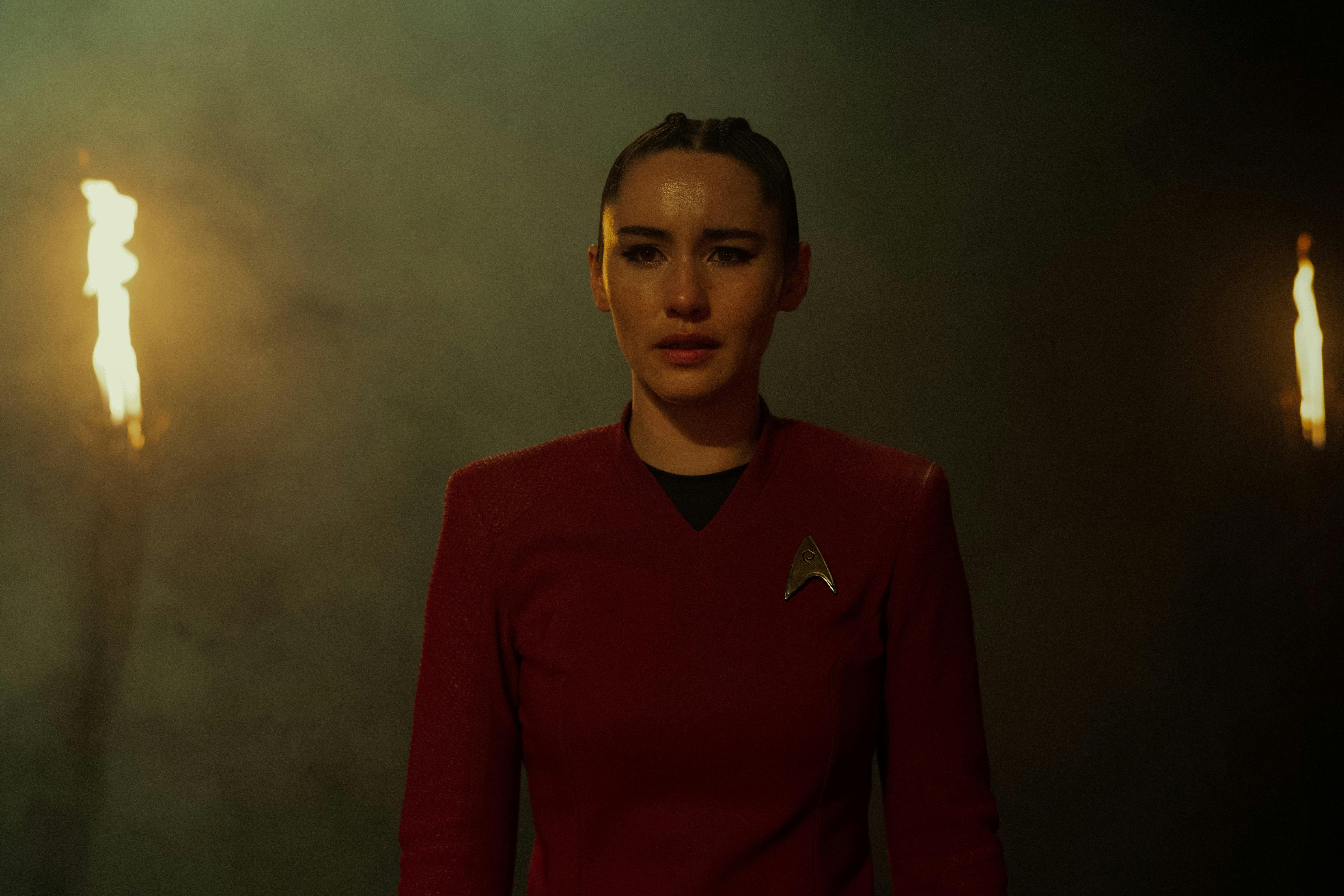
StarTrek.com
While the Gorn may have escaped to feast another day, the alternative — the very one that Kirk found himself wanting to pursue in the beginning of this episode — is one that goes against the values of Starfleet and the Federation. Had Kirk claimed vengeance or destroyed the Gorn because of the threat they might have posed, he would have permanently put the Gorn into a category of "monsters." Despite all of the conflict Starfleet has experienced in the galaxy, its mission has never been about "othering" the enemy. The captains always strive forward and attempt to find common ground with their enemy. It's what made communication with the Horta possible, and it’s why Spock sought peace with Klingons and Romulans. It’s also why Star Trek: Voyager was able to rehabilitate former Borg into their crew. Sometimes personal interests and experiences get in the way momentarily, as Kirk's hatred of the Klingons did in Star Trek VI: The Undiscovered Country or Picard’s did when dealing with Hugh. Ultimately, Spock’s words in "Arena" explains the belief of the Federation towards their enemies, “I merely suggested that a regard for sentient life.” Though Spock was interrupted by a still-furious Kirk, his point was that their enemy was not a faceless monster. They were being capable of sentience, and that shouldn’t be forgotten. How do the recent additions to the Gorn’s portrayal change that argument? If you truly dedicate your life to the mission to "seek out strange new worlds, new life, new civilizations...," will you be able to respect that sentient life when it doesn't respect you back? Or will you turn to annihilation when that species possesses no conscious? Will you extend mercy, or will you justify the reasons why you should eliminate them instead? These are the questions that the Gorn’s depiction in Strange New Worlds invites you to ask about Kirk’s offer of mercy.
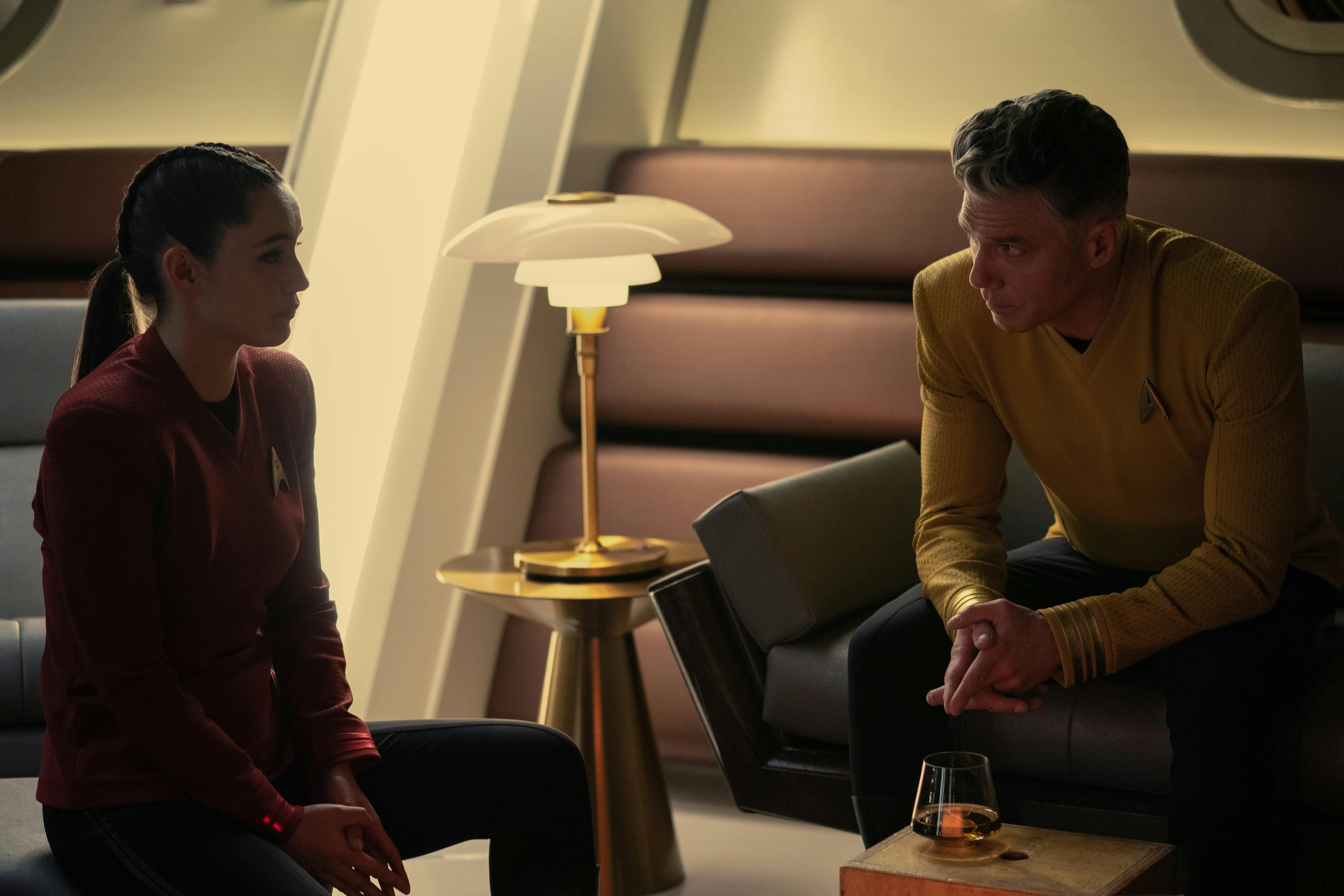
StarTrek.com
For audiences watching “Arena” now, the answer is more complicated than it may have been in 1967. After what we have seen the Gorn do, agreeing with Kirk that the Gorn deserve mercy might not be easy — which makes it all the more necessary and powerful when that mercy is delivered. With the new information about the Gorn, Kirk’s decision to exchange vengeance for mercy rejects the worst of humanity’s impulses towards destruction and violence, and embraces Star Trek’s goal of showing a better way forward.

